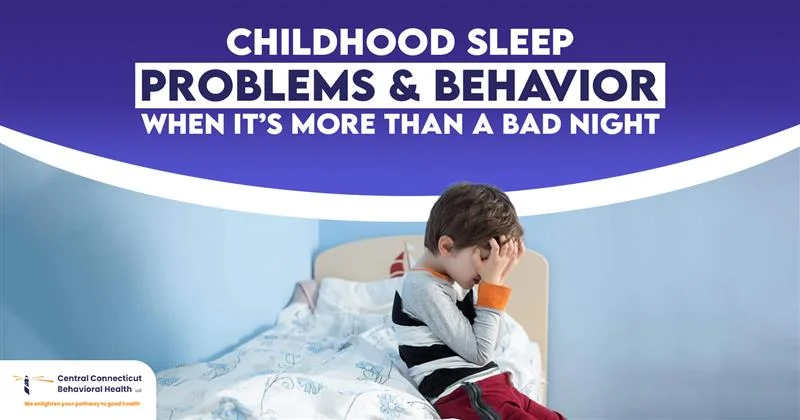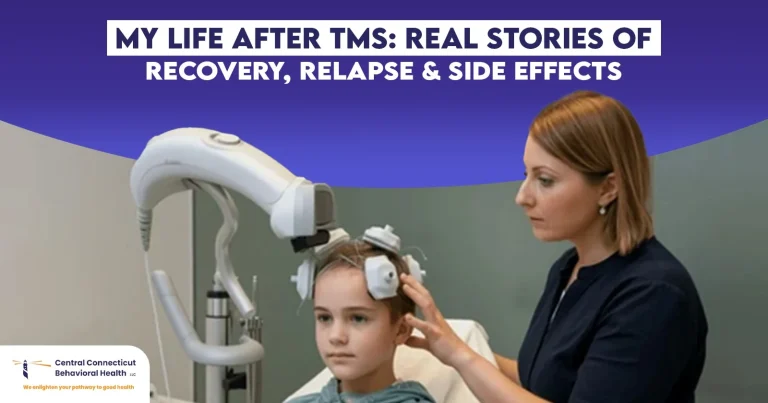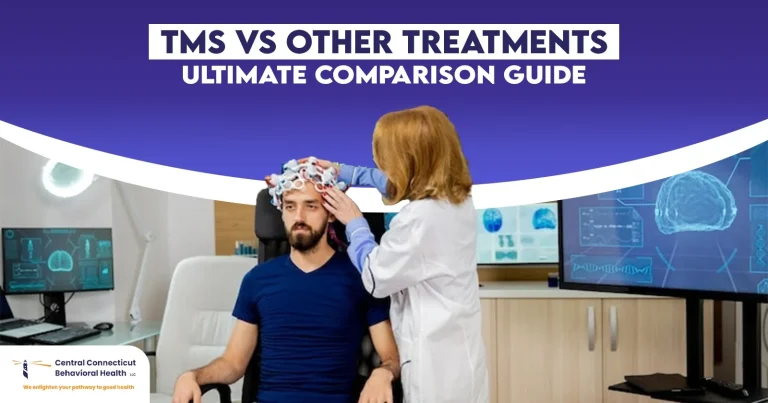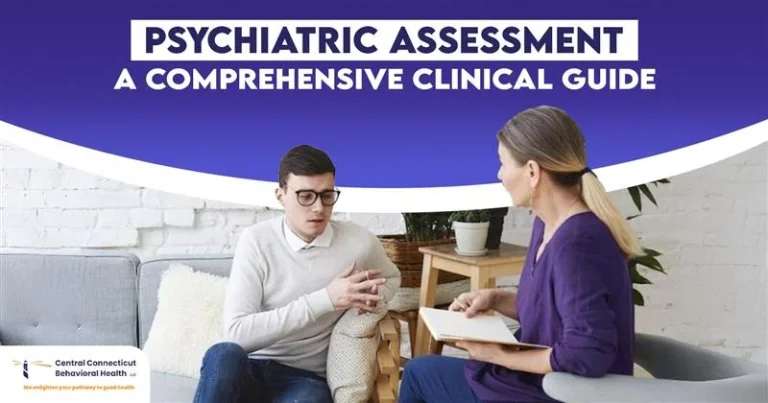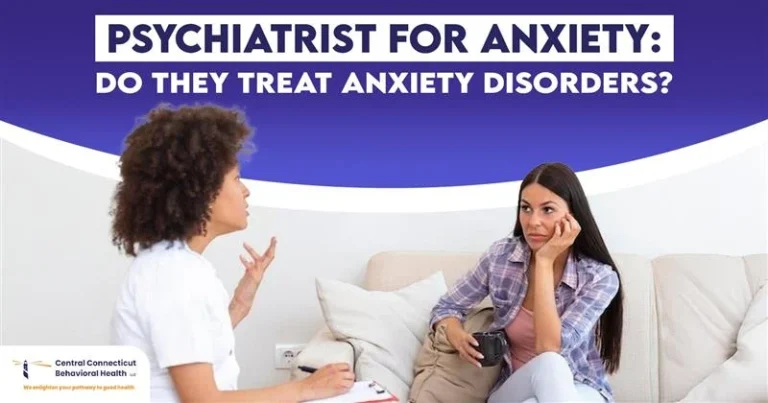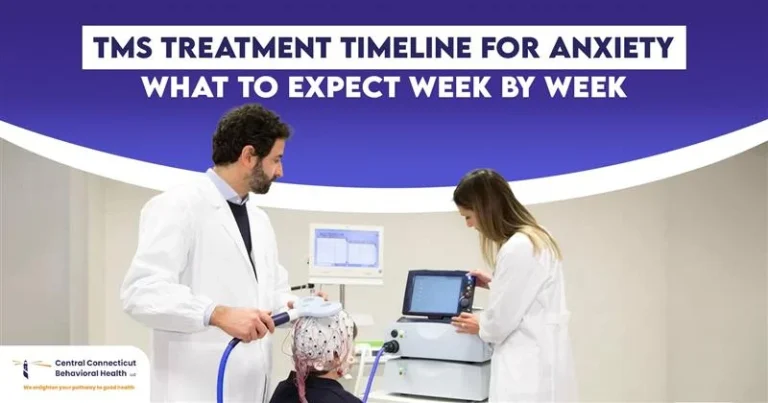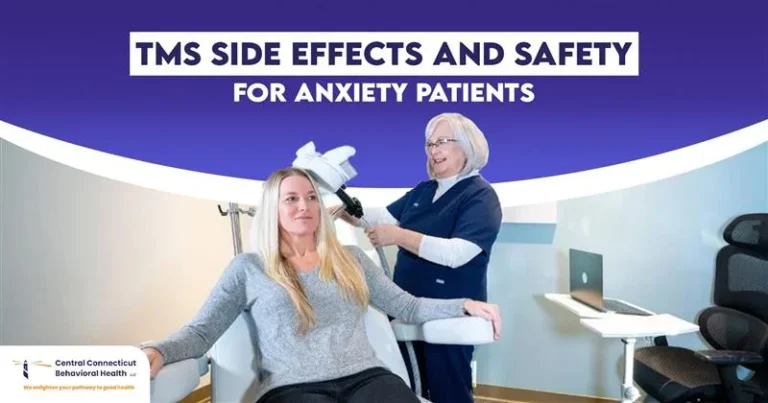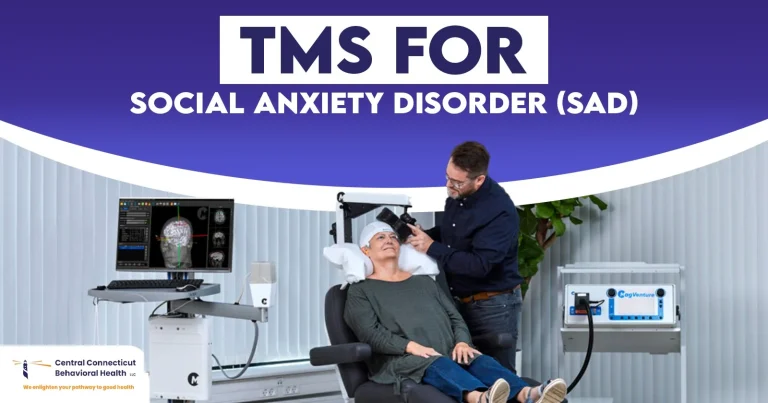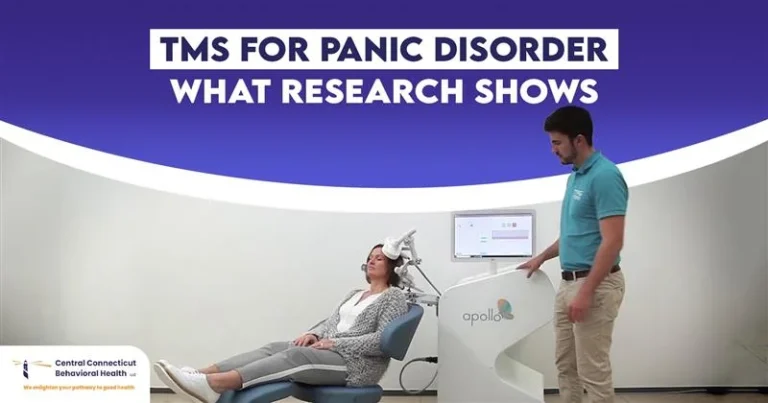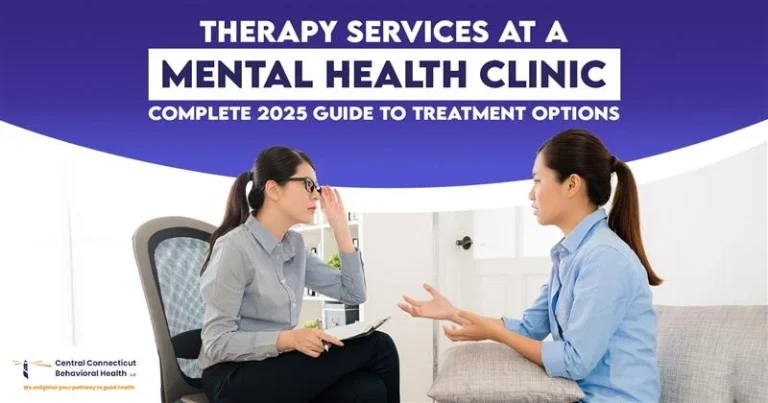If you’ve ever sat beside your child’s bed at 2 a.m., hoping they’ll finally fall asleep, you’re not alone. Many parents go through this — watching their child toss, turn, or wake up crying, which highlights childhood sleep problems. A few bad nights are normal, but when it becomes a routine, you start noticing changes during the day too — crankiness, tears, or short tempers.
At Central Connecticut Behavioral Health, we often tell parents that childhood sleep problems aren’t just about sleep. They can affect how your child learns, behaves, and feels about themselves. And with a little guidance, things can improve.
How to Tell It’s More Than Just a Bad Night
- Every kid has off nights. But here’s when you should take a closer look:
- Your child wakes up several times and can’t fall back asleep.
- Mornings always start with mood swings or tired eyes.
- Teachers mention your child seems distracted or restless.
- Bedtime turns into a daily battle instead of a calm routine.
When these patterns repeat, it often means the issue isn’t just physical. Many behavioral sleep problems in children link directly to stress, anxiety, or emotional overload.
Understanding Pediatric Insomnia
Pediatric insomnia sounds like a big word, but it’s simply when a child has ongoing trouble falling or staying asleep. You might see this if your child’s mind races at night or they ask for “just one more thing” before bed — water, bathroom, story, hug.
Why it happens:
- Too much screen time before bed.
- Irregular bedtime schedules.
- Anxiety or overstimulation.
The good news? Therapy works — especially CBT for insomnia children, which helps them learn simple calming habits, bedtime cues, and healthy thought patterns.
If you’re wondering about the causes of childhood insomnia, it’s rarely just one thing — it’s often emotional buildup, inconsistent sleep cues, or habits that sneak in unnoticed.
Infant Sleep Regression: When Sleep Takes a Step Back
You finally think you’ve got your baby’s sleep figured out — and then suddenly, they’re up crying again at midnight. That’s infant sleep regression, and it’s a very real (and exhausting) phase.
- It often shows up during growth spurts or big milestones.
- Babies might wake up more often or need extra comfort.
- Most regressions fade on their own, but if it drags on, it’s worth asking when to see a doctor for child sleep problems.
- You’re not doing anything wrong. It’s just that little brains and bodies are growing — sometimes faster than they can handle.
Night Terrors: Scary for Parents, Not Usually for Kids
If your child screams, cries, or appears terrified but doesn’t wake up or remember it — that’s likely a night terror.
Here’s what to know:
- It’s different from a nightmare — your child is half-asleep.
- It’s often triggered by stress, fatigue, or overtiredness.
- Keeping a consistent bedtime and calm evening helps.
While night terrors in children look alarming, they’re usually harmless. If they happen often, a chat with one of the best pediatric sleep specialists in Connecticut can help you understand the triggers and solutions.
When Behavior and Sleep Go Hand-in-Hand
Many kids don’t just have sleep issues — they have emotional ones underneath. A child who’s anxious, overstimulated, or worried about something might not be able to settle down, even when tired.
In these cases, working on sleep issues, kids and behavior together makes a big difference. Parents often find it helpful to keep a child sleep problems symptom checklist to track patterns — when it started, how long it lasts, what helps, what doesn’t.
Sleep isn’t only physical rest. It’s how the brain recharges emotionally too.
When It’s Time to Ask for Help
If you’ve tried everything — bedtime routines, quiet rooms, story time, no screens — and nothing works, it might be time to get guidance. Knowing when to see a doctor for child sleep problems isn’t about overreacting; it’s about getting ahead of long-term struggles.
At Central Connecticut Behavioral Health, our clinicians work with families to uncover the emotional or behavioral roots behind childhood sleep problems. Sometimes, all it takes is small changes and emotional support to help your child (and you) finally rest better.
How Treatment Can Help
- CBT for insomnia children focuses on healthy bedtime habits and managing racing thoughts.
- Routines can be personalized — lighting, comfort items, or relaxation methods that suit your child.
Collaboration among parents, therapists, and teachers often gives the best results.
At Central Connecticut Behavioral Health, care doesn’t end at sleep — it helps children rebuild confidence, calmness, and emotional balance.
Final Words
Childhood Sleep problems can turn even calm families into exhausted ones. It doesn’t mean that you are failing as parents but these signs only indicates that your child is in need of some extra help and care from a medical professional which will help regulate their emotional behavior.
If your nights feel endless and your mornings feel heavy, remember: change begins with one small step. The right help, routine, and understanding can turn those restless nights into peaceful ones again.
FAQs: Childhood Sleep Problems
-
How are childhood sleep problems caused?
They are caused by academic or emotional stress, an imbalanced diet or restless routine, and certain factors like noise or high screen time.
-
How is pediatric insomnia treated?
Therapies like CBT or DBT for insomnia children, balanced diet, balanced routine, reduced stress, and managing screen time can help in reducing pediatric insomnia.
-
Are night terrors dangerous?
Night terrors in children look intense, but they’re generally not harmful. A calm bedtime and proper rest often reduce them.
-
When should I talk to a doctor?
If childhood sleep problems last for weeks and affect mood or focus, it’s time to ask when to see a doctor for child sleep problems.
-
How do I track my child’s sleep issues?
A child sleep problems symptom checklist helps record sleep times, triggers, and improvements — useful during consultations.


